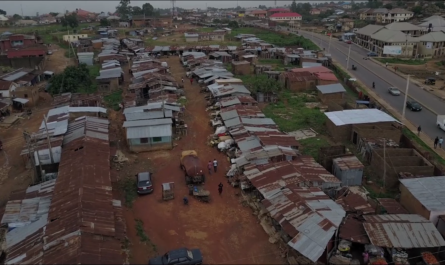The biggest dengue outbreak ever in Bangladesh has killed over 1,000 people
Dengue fever, which is spread by mosquitoes and is becoming more common owing to climate change, has claimed the lives of more than 1,000 people in Bangladesh this year, making this the deadliest dengue outbreak ever documented in the nation.
High fevers, headaches, nausea, vomiting, muscle soreness, and, in the most severe cases, bleeding that can result in death are all symptoms of the tropical disease dengue.
According to data from the Bangladesh Directorate General of Health Services released on Monday, 1,017 people have died since January from the mosquito-borne disease, including more than 100 children, and 208,000 more people have been infected.
Although dengue fever is widespread in the South Asian nation, with cases normally peaking between July and September during the monsoon season, the increase in instances this year began significantly earlier, at the end of April.
The World Health Organization (WHO) has warned that climate change is causing dengue and other mosquito-borne illnesses like chikungunya, yellow fever, and Zika to spread more quickly and widely.
A total of 2,006 deaths were reported among the more than two lakh confirmed cases, according to data from Bangladesh’s Directorate General of Health Services published on Sunday night.
Be-Nazir Ahmed, a former director of the organization, claimed that the number of fatalities so far this year had exceeded that of every other year since 2000. He told the news agency AFP on Monday that “it’s a massive health event, both in Bangladesh and in the world.”
He continued, “an optimum temperature for the multiplication of the virus” is where the Aedes mosquito that spreads dengue thrives. “This temperature level is being produced in part by global climate change.”
Dengue cases in Bangladesh have been documented since the 1960s, but the country only registered its first dengue haemorrhagic fever outbreak in 2000.
The disease-causing virus is currently endemic to Bangladesh, where outbreaks have a history of deteriorating since the turn of the century.
The majority of instances are reported during the monsoon season, which lasts from July to September and brings the majority of the nation’s yearly rainfall as well as sporadic floods and landslides.
During the outbreak, the WHO is assisting the Bangladeshi government and authorities “to strengthen surveillance, lab capacity, clinical management, vector control, risk communication and community engagement,” according to WHO director-general Tedros Adhanom Ghebreyesus in a news briefing last month.
Also read : Is the GPT-3 conversation bot damaging to the health sector?
However, there are recommendations from public health professionals in the nation to prioritize dengue and concentrate on prevention measures, such as early detection and access to proper health care, as subsequent dengue infections can be more dangerous and even fatal.
These exhortations don’t just apply to Bangladesh. As a result of the use of fossil fuels, the planet is warming up quickly, and breakouts will occur more frequently in new parts of the world.
Mosquito-borne illnesses including dengue, Zika, chikungunya, and yellow fever will probably spread further and have a greater impact on human health as the climate crisis gets worse.
Dengue has had a particularly bad year in South America, with Peru currently experiencing its biggest outbreak on record. Authorities alerted numerous areas after cases in Florida. Asia has seen a rise in instances that has affected, among other countries, Sri Lanka, Thailand, and Malaysia. Additionally, outbreaks have been observed in sub-Saharan African nations including Chad.
Abdi Mahamud, WHO’s head of warning and response, described the outbreaks as a “canary in the coalmine of the climate crisis” and said that “more and more countries” are dealing with “the heavy burden of these diseases.”




